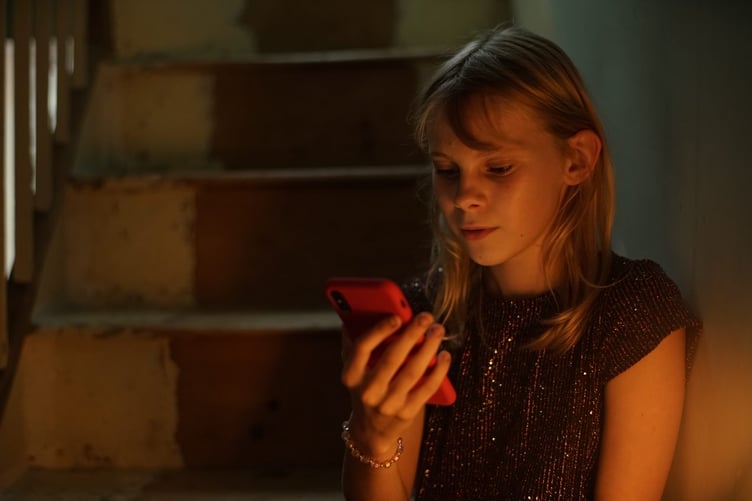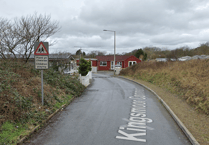This World Mental Health Day, Paul Davies praises farming organisations and NSPCC talks about its Childline counselling sessions…
Praise for farming organisations
Farming organisations have been praised in the Senedd Chamber by local Member Paul Davies for their work to support farmers with mental health conditions, ahead of today’s World Mental Health Day, October 10. Mr Davies explained that there are charities and organisations working to support the agricultural sector and highlighted the impact of issues like Bovine TB on farmers’ mental health and wellbeing.
Mr Davies said, “Ahead of World Mental Health Day, I wanted to take the opportunity to thank those working in our farming organisations for the support their offer the rural community. Farming can often be a lonely, isolating job and I know that issues like Bovine TB continue to have a distressing impact on farming families.”
“These organisations are a lifeline to some farmers in Pembrokeshire and we must never underestimate their importance to the sector.”
“I called on the Welsh Government to work with these organisations and ensure that they can continue to provide these valuable services for years to come.”
Childline Counselling Sessions
More than half of all counselling sessions (59%) delivered by Childline to children and young people in Wales last year were related to mental health issues.
In 2022/23 the NSPCC service delivered at least 3,327 counselling sessions in Wales on mental and emotional health and wellbeing.1 Of these, 900 were specifically related to stress and anxiety.
Across the UK the NSPCC service delivered more than 105,000 counselling sessions on mental and emotional health and wellbeing, with more than 30,000 related to stress and anxiety.
This World Mental Health Day (October 10), the charity is raising awareness of the mental and emotional health issues children and young people are facing, and to let them know they are never alone.
Childline continues to be a safe space for anyone under the age of 19 who is seeking help and support, with the option for them to speak to a counsellor either over the phone or online. Last year the service delivered a total of almost 200,000 counselling sessions to children and young people, with around 75% of these taking place online.
The top five issues raised by children and young people when speaking to Childline about their emotional and mental wellbeing were:
- - Anxiety and stress - 900 counselling sessions for children in Wales (31,143 across the UK)
- - Low mood and unhappiness – 14, 253 counselling sessions
- - Accessing support and services for mental health – 6,397 counselling sessions
- - Depression – 6,389 counselling sessions
- - Loneliness – 5,109 counselling sessions
One boy, aged 17 from Wales, told Childline: “I think it will sound stupid but since my girlfriend broke up with me, I can’t stop worrying about the future. I have plans to go to university but when I try to think about it, I can only think about it all going wrong. I get real anxiety about nothing working out for me.”
One girl, aged 14 from Wales, told Childline; “I spend a lot of energy pretending to be ok on the outside and bottling up how I really feel. This year was one stress after another, my best friend got really ill we had to pick GCSE subjects and plan our future, my friend group drifted apart, and school feels so judgemental all the time. How am I supposed to cope with it all?”
A 17-year-old from Wales told Childline; “I’m at a point where I don’t want tomorrow to come. Every day I wake up filled with anxiety about what will go wrong next. I have asked for help, but nothing has been sorted yet, it feels pointless asking again. I appreciate being able to write this all down to Childline at least.”
Support
It can be hard for parents to accept that their child may be struggling with mental health issues, such as depression or anxiety. However, it is crucial that young people feel supported, reassured, and not judged by the adults in their lives.
World Mental Health Day has a focus on driving a positive change for everyone’s mental health. Adults can support young people’s wellbeing in a range of ways, including:
- letting them know you’re there for them and are on their side
- being patient and staying calm and approachable, even if their behaviour upsets you
- recognising that their feelings are valid and letting them know it is okay for them to be open and honest about their emotions
- thinking of healthy ways to cope together, like yoga, breathing exercises or mindfulness
- encouraging them to talk to their GP, someone at their school or Childline. Especially if they’re finding it hard to talk at home.
- taking care of yourself and getting support if you need to. Try not to blame yourself for what’s happening and stay hopeful for them.
Shaun Friel, director of Childline, said: “Young people may struggle with a range of mental health issues throughout their childhood and adolescence. This can be a time of turbulence, and so it’s important that children feel supported and uplifted.”
“Ensuring that young people have a network of support, whether that’s in school, with their peers, at home or through organisations such as Childline, helps young people take the first step to tackling these struggles. Childline is here for any child that may be struggling with their mental and emotional wellbeing.”
All children can speak to a trained counsellor over the phone on 0800 1111, via email or on a 121 chat on the Childline website.
Children can also visit the website to find more advice on any concerns or questions they may have about mental health struggles.





Comments
This article has no comments yet. Be the first to leave a comment.